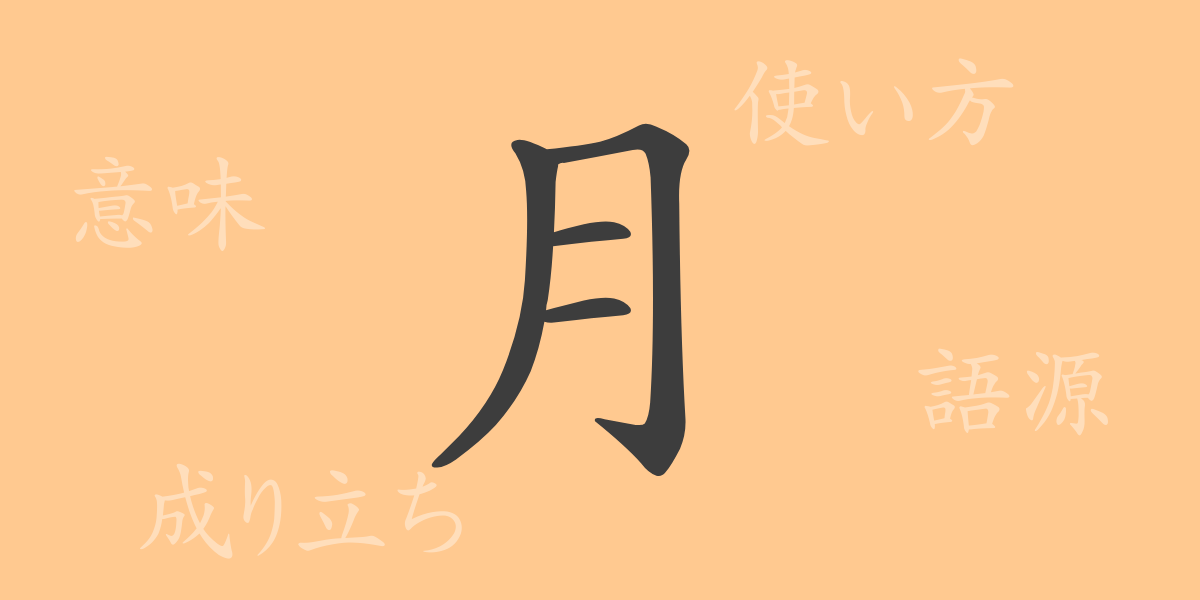When you look up at the night sky, the moon, which has inspired countless stories and poems throughout history, shines brightly. The moon is a deeply rooted presence in our daily lives, yet its mysterious charm never fades. This article focuses on the Japanese kanji “月” (つき, tsuki), exploring its origins, meanings, usage, and various idioms and proverbs that feature this character.
Origin of 月
The kanji “月” (つき, tsuki) has been used since ancient China to represent the moon. Its shape symbolically depicts the phases of the moon from new to full. Tracing its etymology, “月” originally derived from “肉旁” (にくづき, nikuzuki), which means flesh or body, and later came to be used as a unit of time indicating the passage of months.
Meaning and Usage of 月
“月” (つき, tsuki) refers not only to the celestial body but also to the unit of time, a month. It is widely used in terms describing natural phenomena like “月光” (げっこう, gekkou) meaning moonlight, and in everyday terms such as “月給” (げっきゅう, gekkyuu) meaning monthly salary.
Readings, Stroke Count, and Radical of 月
The kanji “月” (つき, tsuki) is familiar to many Japanese people due to its simple yet profound form.
- Readings: The on’yomi (音読み) readings are “ゲツ” (げつ, getsu) and “ガツ” (がつ, gatsu), and the kun’yomi (訓読み) reading is “つき” (つき, tsuki).
- Stroke count: It has a total of 4 strokes.
- Radical: The radical is 月部 (つきへん, tsukihen).
Idioms, Proverbs, and Phrases Using 月
There are numerous idioms, proverbs, and phrases in Japanese that include “月” (つき, tsuki). For example, “月日が経つ” (つきひがたつ, tsukihi ga tatsu) means that time passes, “月並み” (つきなみ, tsukinami) describes something ordinary and unremarkable, and “月明かり” (つきあかり, tsukiakari) refers to the gentle light emitted by the moon. These expressions are deeply embedded in Japanese life and sensibilities.
Conclusion About 月
The kanji “月” (つき, tsuki) holds a special place in the Japanese language due to its visual beauty and its diverse meanings and usages. From ancient times to the present, “月” has continued to influence people’s lives and culture. It will remain a captivating presence, stirring our imaginations and capturing our hearts.

























